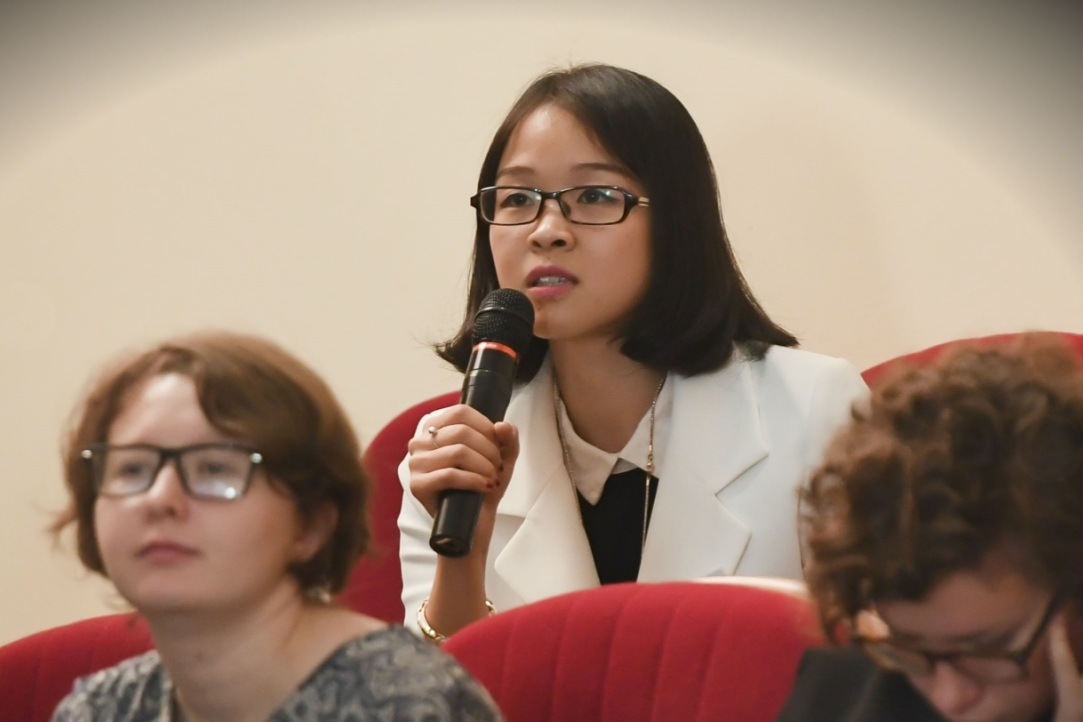HSE SPb Master's Student Will Join PhD Programme in History at Princeton University

Liya Xie, a student of the Master’s Programme ‘Applied and Interdisciplinary History “Usable Pasts”’, has been admitted to Princeton University, a prestigious American university located in the state of New Jersey. The admissions process is rigorous—only 1 of 16 applicants is admitted each year. Liya told the HSE News Service about about what the application process was like.
Admissions and my preparation
Admission to the graduate programme in History is highly competitive. Each year, the department reviews approximately 400 applications and admits a cohort of approximately 25 students
Personally, I started to prepare for my PhD application during the summer vacation after my first year of the Master's programme. I studied for the GRE (Graduate Record Examinations) from mid-July to mid-October, and I got 169 out of 170 for Verbal Reasoning, 166 out of 170 for Quantitative Reasoning (math), and 5 out of 6 for Analytical writing. From mid-October until the application deadline, I was mostly focusing on writing the statement of purpose and revising my writing sample. Apart from that, academic transcripts and three recommendation letters from professors were also required for the application.
I applied to 7 programmes in total, and I got into three of them. Apart from Princeton University, I also received fully-funded offers from Georgetown University and the University of Toronto. In the end, I decided to attend the programme at Princeton University as its funding is the most generous (about $88,000 per year) and its academic reputation goes without mentioning.
Future research
I believe that the skills that I have learned from my bachelor and master's education will be a valuable asset to my graduate research, in which I would like to continue to explore the historical contacts between Russia and China both in the regional and global contexts
Inspired by Fernand Braudel's longue durée approach to the Mediterranean region and subsequent works on regional systems around the world, I hope to conceptualize a new regional system of Eurasia within which multiple layers of exchanges are embedded, including political, economic, social, cultural and artistic ones.
‘One potential research direction is an investigation of the study and transmission of Chinese medicine in Russia with a focus on the role played by Russian Orthodox missionaries. The history of medicine in Russia could be a useful entry point to understand how Russia tried to find its place in the world, given the different medical traditions in the West and the East.
Another project could be an examination of the history of the tea trade between Russia and China in the general context of the emergence of consumerism in Europe and increasing trade connections around the world. The critical issue that I hope this project would address is the question of how the consumption of material objects like tea in different social strata shaped the perception of the cultural other and constructed the notion of 'the self'.
In both projects mentioned above, I am interested in exploring how the duality of Russian identity, which is in part shaped by the country's bi-continental geography, complicates the conventional conceptualization of the contacts between Europe and Asia as a clash of Western and Eastern civilizations.
How our programme helped me with my academic development
While writing my master's thesis, I have significantly improved my historical research skills
The process of writing my master’s thesis has greatly equipped me with the essentials of historical research. Firstly, I became well read in the historiography on Sino-Russian contacts, Orientalism, Russian and European Sinology, as well as material culture. These studies narrowed down my research focus and helped me find the appropriate theoretical framework.
On top of that, my experience navigating the Russian archives and libraries has considerably enhanced my Russian language skills in understanding both contemporary scholarly works and Old Russian orthography. For this, I am truly grateful for all the assistance and guidance provided by my supervisor Professor Marina Loskutova, whom I respect for her erudition, patience, and eagerness to help students.
Princeton’s History PhD programme is designed to be completed in five years. During the first two years students complete their coursework, language training, two original research papers, and take the General Examination. They devote the next three years to researching and writing the dissertation, drawing upon Princeton’s rich library holdings as well as archives across the world. Many students also choose to teach undergraduate courses as preceptors to gain valuable classroom experience. The PhD degree is conferred following the successful Final Public Oral Examination of the dissertation.
All students admitted to the programme are usually supplied with a five-year fellowship package from the Graduate School, which covers tuition, healthcare, and stipend. This is possible due to Princeton’s endowment, which is one of the largest in the US.

